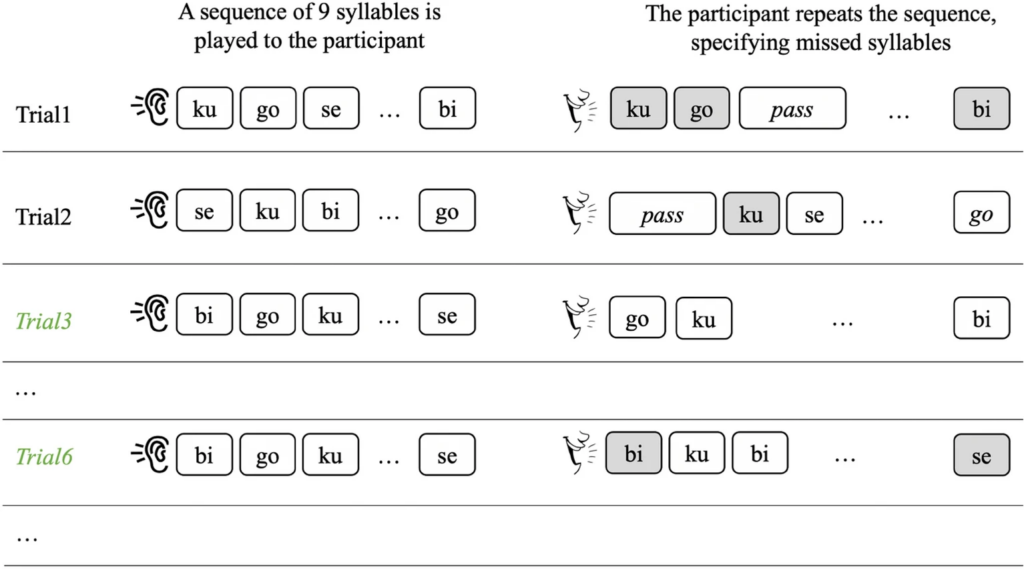Developmental dyslexia is a prevalent learning difficulty characterized by slow reading and/or reading with many errors. Individuals with developmental dyslexia (IDDs) often get relatively low scores in short-term memory (STM) tasks. For example, compared to individuals without developmental dyslexia (non-IDDs), it will be harder for IDDs to repeat a series of syllables. This STM task is an example of a Span Task.
The low performance of IDDs in Span Tasks is commonly attributed to poor phonological memory. However, we suggest an alternative explanation. Many times, the items used in Span Tasks are frequent items, such as words or word-parts that we often encounter in everyday life (e.g., digit words like “six” or “five”). Previous studies showed that while non-IDDs process frequent items better than infrequent ones, IDDs benefit less from encountering items repeatedly. Thus, we hypothesize that the performance of IDDs in these Span Tasks is low not because of an overall reduced STM, but because they do not benefit from item frequency to the same extent as non-IDDs. On the contrary, the learning of repeated sequences has been shown to be largely independent of the frequency of the composing items, and therefore this type of learning may be unimpaired in dyslexia.
To test both predictions, we used a Hebb-learning paradigm: Participants were asked to repeat sequences of syllables. The sequences were composed either of frequent or infrequent syllables (to test the effect of item frequency), and also one sequence was repeated every third trial (to test the effect of sequence repetition); see Figure 1 below.
We found that IDDs’ performance is especially poor compared to non-IDDs’ when frequent syllables are used, and that their repeated series learning does not differ from that of non-IDDs. These findings suggest that the impaired learning of a repeated series is not a core characteristic of dyslexia, and that the reports on reduced STM in dyslexia to a large extent may be explained by the reduced benefit of item frequency.
Figure 1:


